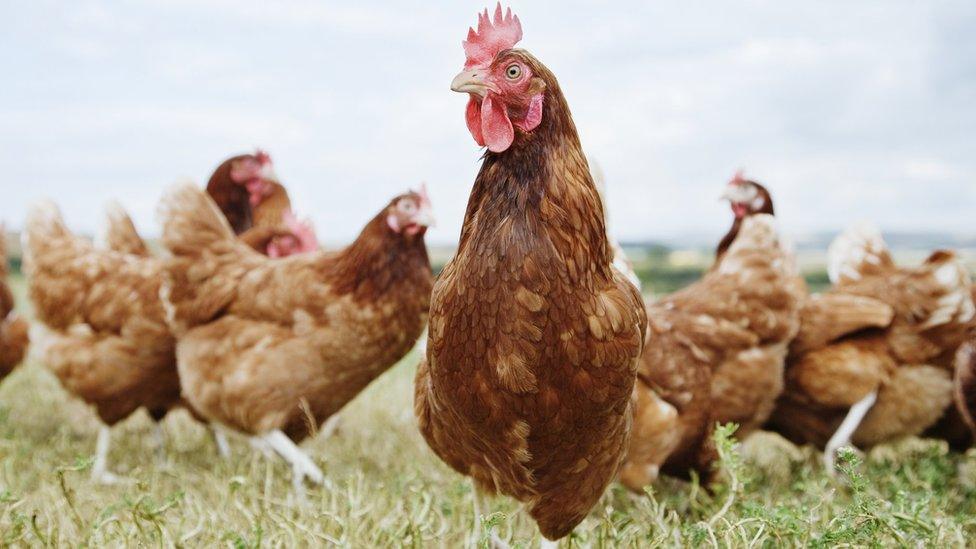Two poultry workers test positive for bird flu
- Published

Two poultry workers in England have tested positive for bird flu, although there are no signs of human-to-human transmission, the UK Health and Security Agency (UKHSA) has said., external
Both people were known to have recently worked on an infected poultry farm and have since tested negative.
Neither worker experienced symptoms of avian influenza, with both cases found during screening.
The risk to the general population remains very low, the UKHSA added.
The UKHSA is running a programme of testing workers who have come into contact with infected birds, but is also running asymptomatic testing.
The first person who tested positive is thought to have inhaled the virus.
The second person is thought to be a more complicated case and it is unclear whether they have suffered a genuine infection or whether they too inhaled the virus while at work.
The UKHSA says precautionary contact tracing has been undertaken for this second individual.
Chief Medical Advisor at the UKHSA Professor Susan Hopkins said that globally there is "no evidence of spread of this strain from person to person, but we know that viruses evolve all the time and we remain vigilant for any evidence of changing risk to the population."
"It remains critical that people avoid touching sick or dead birds, and that they follow the DEFRA advice about reporting," she added.
Professor James Wood, head of veterinary medicine at the University of Cambridge, said the finding should lead to "greater attention" on asymptomatic infection and sampling.
He said it was important to sequence the virus in the two workers and infected birds in order to see if there were any mutations of concern, adding that resampling the workers could indicate whether they had developed an immune response.
There are various different types of avian flu that have circulated in the past - the latest one infecting birds is H5.
Although none of these strains easily infect people, and they are not usually spread from person to person, small numbers of people have been infected around the world, leading to a small number of deaths.
There have been very few cases of bird flu transmission to people recorded in the UK. The virus is not that well suited to humans and does not spread as easily as it does between birds.
It usually requires very close contact with an infected bird, which is why experts say the risk to humans is currently considered very low.
These latest cases do not change that assessment. There is no suggestion that the virus has changed to become more infectious to us or spread from person to person.
A "mandatory housing order" for England and Wales was lifted on 18 April, meaning poultry and captive birds could be kept outside again.
The measures were introduced during the world's biggest ever bird flu outbreak.
Government guidance on the signs of bird flu and how to report it can be found here., external